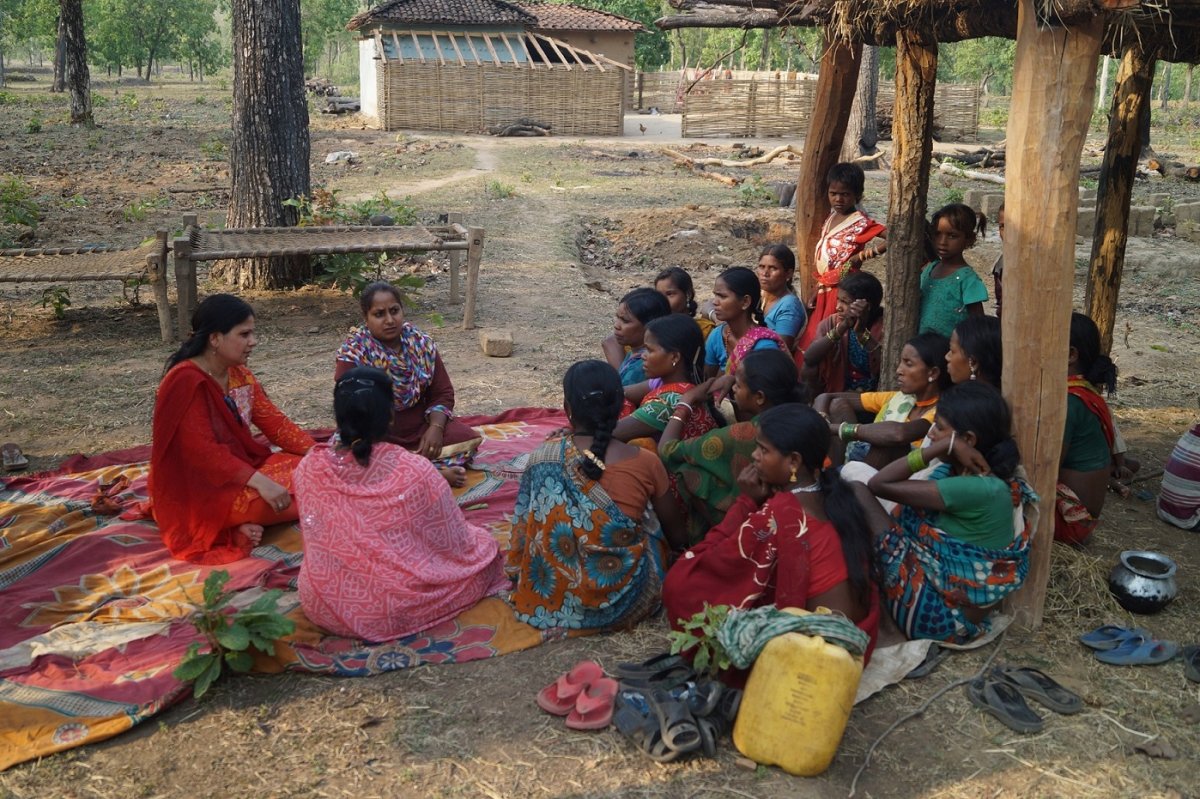Gazala Paul spent her 50th birthday among the Baiga people of Chhattisgarh. On the eve of her 25th wedding anniversary, she was in Rapar, a block near the Little Rann of Kutch, in a celebratory mood. The MLA of the region had come to a meeting organised with villagers from his constituency and promised to deliver them safe water based on sound scientific principles. He invited and encouraged Gazala and her group to lead this process.
I was with Gazala on both these occasions. In fact, over the past several years, we have travelled a lot together across rural Gujarat and Chhattisgarh. A common interest in water shared by Samerth, a not-for-profit founded and run by her, and Arghyam where I work, being the reason. In both these regions, Samerth has been working with the Baigas and Kolis to ensure access to safe drinking water.
The Baigas are tribal people in Chhattisgarh, considered even more vulnerable than other tribal populations. The Government of India calls them a "Particularly Vulnerable Tribal Group". They live in forested areas of Chhattisgarh and many times their only access to drinking water is from jhiriyas – shallow, unsanitary holes in the ground – that often cave in.
Rapar block is dotted with more than 250 small hamlets. Each hamlet has just 30-35 families that are generally cut off from the main village. The people generally rear livestock and are from the Koli community – one that has seen itself being taken on and off the list of Schedule Castes for unknown reasons. Women in these hamlets where Samerth has worked over the last 7-8 years, recollect summer days when they would dig small holes called virdas in the river beds and spend the night sleeping next to them waiting for them to fill up with water that they would collect as the virda filled.
Ensuring that there is drinking water in both these places could be as simple as finding a source (a borewell, a well, a river that is not so close, etc.), putting in the infrastructure and turning on the supply. However, this is not the model that Samerth follows.
 Instead, their work in both states is firmly rooted in the communities that they work with, where they help create more inclusive planning processes, and also facilitate a more scientific understanding of water among people who are able to articulate not only their water needs but also plans on how to augment supply and manage demand. All this has led to sharpening the delivery of government programmes like the MGNREGA – a big hit in their Gujarat programme. The success became self-evident when they were asked by the local MLA to help scale their work across 97 Gram Panchayats.
Instead, their work in both states is firmly rooted in the communities that they work with, where they help create more inclusive planning processes, and also facilitate a more scientific understanding of water among people who are able to articulate not only their water needs but also plans on how to augment supply and manage demand. All this has led to sharpening the delivery of government programmes like the MGNREGA – a big hit in their Gujarat programme. The success became self-evident when they were asked by the local MLA to help scale their work across 97 Gram Panchayats.
Gazala’s experiences over the years make for fantastic stories, and balmy nights after long days provide a perfect setting to listen to anecdotes of her journey in starting Samerth, the work they have done and what her aspirations are. What remains constant in her narratives is a fierce commitment to ensuring that people, especially those without voices, gain spaces in traditional decision making. To be able to serve themselves best, Gazala believes that people must first gain access to the right set of tools that can help them. Water, in Samerth’s thinking is inseparable from other basic rights. Providing drinking water then becomes a much larger exercise in self-governance.
On one warm summer night last year, Gazala told those of us travelling with her about their work in villages that were struck by the 2001 earthquake. As we passed by a village the next day, she pointed out to the houses that Samerth had helped construct for people who had lost everything in the catastrophe. The sun was setting and our work for the day was done. On an impulse we decided to stop at one of these houses. We were greeted by four generations of that family. It ended up being a lively half an hour. Over black tea, various generations of the family told us stories of how a lack of livelihood opportunities would mean that migration was a regular feature before the earthquake. The young men told us how after the earthquake they made a profit selling dairy products and this allowed the family to stay together.
Surely it wasn’t just a house that helped the family prosper, I asked. No, they said, it was the well that came with the house. Access to water has allowed them to raise livestock and cultivate crops. We initially had funds only to build a house”, says Gazala, “but we had surplus money and the communities suggested this”, she adds.
The well cost Rs. 12000-13000. It has kept the family together for 15 years.
Just another day on the job, done well!
The author works for Arghyam, a charitable trust that works in water and sanitation in India. Samerth completed 24 years of service on September 30th, 2016.













